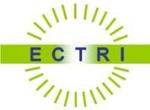In January 2019 the Nordic prime ministers signed a declaration on a common Nordic vision for sustainable aviation in which they committed their countries to strengthening mutual co-operation in order to achieve carbon neutrality in the transport sector.
A new TØI report outlines general recommendations for a common Nordic approach to promoting more sustainable aviation in the Nordic region. The report points out that the Nordic region can have more sustainable air traffic by collaborating on a financing mechanism for renewable fuel financed by common passenger taxes.
Aviation accounts for large parts of the CO2 emissions in the world and is an industry that has lagged behind in the development of climate-friendly fuels. As of today, all forms of production of sustainable aviation fuel are far more expensive than fossil fuels. A political commitment to implement a set share of sustainable aviation fuel (SAF) by 2030 can accelerate the development of sustainable aviation and create real demand and reduce investor risk.
Regardless of the consideration of SAF (Sustainable Aviation Fuel) versus batteries as energy carriers, clear signals of political commitment can be helpful in reassuring investors and other stakeholders without favoring one technological path over the other. At the strategic level, this can be done by formulating a common Nordic vision for sustainable aviation supported by an ambitious common goal for renewable energy in aviation by 2030. In addition, Nordic co-operation, e.g. by a joint financing scheme, are likely to have potential benefits beyond the sum of unilateral measures.
The report presents four overall policy recommendations for a joint Nordic initiative to promote SAF (sustainable aviation fuel):
- Supply side measures with a long-term perspective are needed to promote sustainable aviation. In a 2030 perspective, this will in practice mean pushing for a gradual increase to significantly higher share of SAF of total jet fuel consumption.
- Demand side measures in terms of increased taxation can remedy excessive air travel from under-taxation of aviation both compared to its climate impact and to other consumption, in particular road transport. However, national or Nordic taxes alone are not likely to lead to a profound leap forward toward sustainable aviation over the next decade under existing international regulation.
- A SAF fund combined with an ear-marked passenger tax on all aviation may both minimise carbon leakage from tankering and provide financing mechanism for the additional costs of a significant share of SAF in total jet fuel consumption.
- A common Nordic policy framework consisting of a joint Nordic (or parallel national) SAF fund(s) financed by harmonised Nordic passenger taxes can secure demand for significant and stable volumes of SAF toward 2030. A joint Nordic long term commitment will enhance opportunities for large scale production by reducing investor risks.
If the Nordic countries agree to proceed in line with the proposed approach outlined above, the next step in the preparation of concrete joint initiatives may be:
- SAF fund. Conduct a juridical assessment of alternative models for construction of a Nordic or parallel National SAF fund(s), in particular which financing mechanisms would be in accordance with the EU’s state aid regulation. Elaborate the detailed design of the financial support mechanism a SAF fund, including sustainability criteria for eligibility of SAF.
- Passenger taxes. Nationally implement harmonized passenger taxes in each Nordic country, taking into consideration the size and structure of existing and expected passenger taxes in neighbouring European countries.
- Electric aviation. Politically adopt a common Nordic commitment to pursue the potentials of electric aviation
- RD&D. Finance a common Nordic research and innovation programme for SAF and electric propulsion
- International cooperation. Form a united position in EU and international fora pleading for EU-wide GHG taxation of fossil jet fuel or alternatively a wider scope for national implementation of distance-based passenger taxes.
The report is funded by the Nordic Council of Ministers.






